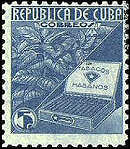 The House today adopted legislation that would roll back restrictive rules adopted by the Office of Foreign Assets Control (“OFAC”) in February 2005 regarding shipments of agricultural goods to Cuba under the Trade Sanctions Reform Act of 2005 (“TSRA”). Under those rules, payment was required prior to the departure of the ships carrying the agricultural goods.
The House today adopted legislation that would roll back restrictive rules adopted by the Office of Foreign Assets Control (“OFAC”) in February 2005 regarding shipments of agricultural goods to Cuba under the Trade Sanctions Reform Act of 2005 (“TSRA”). Under those rules, payment was required prior to the departure of the ships carrying the agricultural goods.
The language of TSRA only requires that payment be made in one of two ways: (i) “payment of cash in advance†or (ii) through financing by third-country (i.e. non-U.S. and non-Cuban) financial institutions. Because of Cuba’s credit standing and inability to obtain third-country financing facilities, most transactions have been structured as “payment of cash in advance.â€
The statutory term “payment of cash in advance†does not specify in advance of what. Prior to February 2005, OFAC had taken the position that a standard “cash against documents†transaction complied with that
term.
In a “cash against documents†transaction, the seller delivers the goods to the shipper and obtains a negotiable bill of lading from the shipper. The Cuban buyer’s bank (usually either Paris-based Banque National de Paris or Société Générale) pays the seller upon presentation of the bill of lading. The bill of lading is then provided to the Cuban buyer by the French bank. That bill of lading authorizes the shipper to unload the cargo and permits the Cuban buyer to take possession of the cargo.
Under prevailing commercial case law, the delivery of a negotiable bill of lading is seen as equivalent to delivery of the goods themselves. Accordingly, payment in advance of obtaining the bill of lading was seen as complying with the statutory requirement of payment in advance.
Under the “cash against documents” method, the goods are usually shipped shortly after the U.S. seller obtains the bill of lading. Because of the short shipping distance from southern ports to Cuba the goods often arrived at the port in Cuba before the French bank has confirmed the issuance of the bill of lading and made payment to the seller’s account. For this reason, OFAC began to advise the sellers’ banks that the transactions did not conform to the TSRA “payment in advance†requirement. And in February 2005, it adopted rules requiring payment prior to the departure of the ship transporting the purchased goods.
The House bill would restore the “cash against documents” rule. The Bush administration recently threatened to veto any legislation that would “weaken” the current sanctions, and it is widely believed that this threat was specifically directed at plans to restore the “cash against documents” rule.
A bill was introduced in the Senate on June 21 that would also restore the “cash against documents” rule. That bill would also lift all restrictions on travel to Cuba. A copy of the Senate bill can be found here.
 Permalink
Permalink
Copyright © 2007 Clif Burns. All Rights Reserved.
(No republication, syndication or use permitted without my consent.)

 Posted by
Posted by  Category:
Category: 

